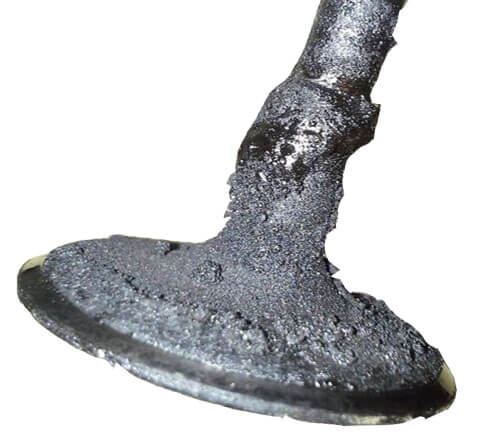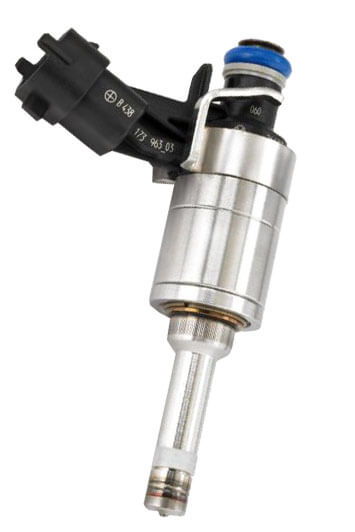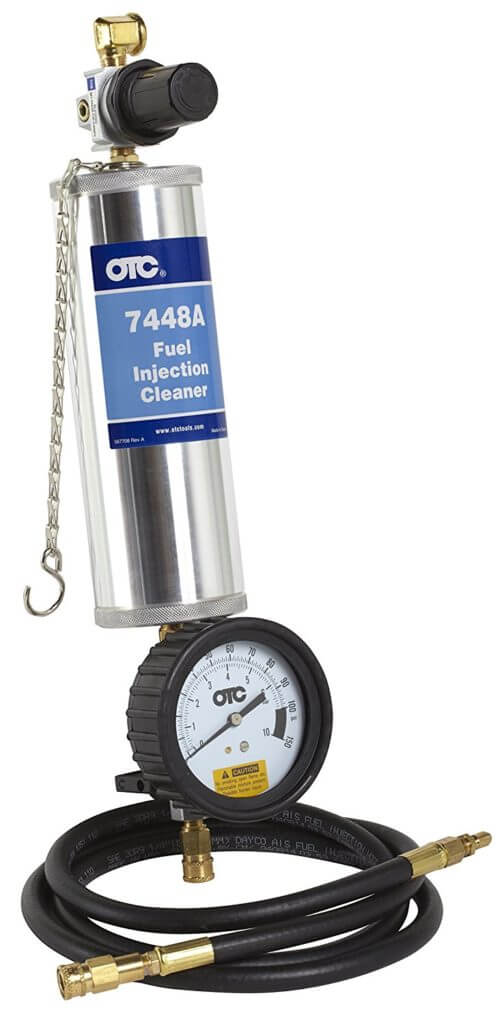Clean carbon buildup in engines
How to clean carbon buildup in engines
Carbon buildup in engines can cause all kinds of problems in both port injected and direct injection engines. If the carbon buildup is in the combustion chamber it disrupts normal airflow, causing turbulence. That turbulence cause the air and fuel to mix unevenly, which means you’ll have areas of rich and lean mixtures. When the mix is ignited by the spark plug, the result is an erratic flame front which creates hot spots in the combustion chamber, forming even more carbon buildup issues.
Top Tier Gas
The fuel injector cleaners found in Top Tier gas should remove the carbon deposits at about the same rate they’re being formed. But the design of direct injection engines, where the injector tip is located inside the combustion chamber can upset that balance.
Direct injection engines more prone to carbon buildup problems
In port injected engines, the fuel is sprayed into the intake port, so the intake valve is constantly bathed in fuel containing cleaner. But in a direct injection engine, the fuel is sprayed directly into the combustion chamber, so the back of the intake valves never get cleaned.
Direct injection engines are designed to fire with a leaner fuel mixture. In other words, they produce more energy from less fuel than a port injected engine. The downside to the technology is there’s little room for error in the air/fuel mixture. If there’s a hot spot in the engine, you’ll get a lean misfire.
Since the intake valve opens into the combustion chamber, it comes into contact with the byproducts of a misfire. During a misfire, temps don’t reach the same level as during a full burn. So the

Carbon buildup on valve
byproducts can stick to the neck of the intake valve and form deposits. Since the back of the valve never gets cleaned by fuel, these valves are more prone to carbon buildup and that buildup causes hot spots that create more misfires.
Carbon buildup in BMW, Audi and VW engines
BMW, Audi and VW have far more carbon buildup problems than other brands. In fact, GM and Ford engines have a fraction of the carbon buildup complaints. To understand why, you first have to understand how direct injection works.
Direct injection varies the injection pressure and droplet size based on where the piston is during the compression stroke. Direct injection has to provide

Direct injection
enough fuel to provide good combustion, but it’s also designed to cool the combustion chamber to reduce the formation of oxides of nitrogen. So the computerized engine controls command the direct injection system to deliver a larger dose of large droplets at the start of the compression stroke and then deliver much smaller droplets at extremely high pressure (up to 2,000-psi) near the end of the compression stroke. The smaller droplets evaporate and help cool the heat created by compression.
The software that controls the direct injection process determines whether the process will result in more carbon buildup. Apparently, the software designs for BMW, Audi and VW result in excessive carbon buildup accumulation
Fix carbon buildup in engines
There are four fixes to carbon buildup issues.
First, Make sure the software in your vehicle is up to date. Manufacturers are constantly issuing updates to solve these types of problems. If you own a BMW, Audi or VW with carbon buildup problems, ask the shop to update your vehicle’s software.
Second, On all engines, make sure you’re filling with a Top Tier gas since that gas has the highest level of fuel injector cleaners. That will keep the fuel flowing through the injectors. If you use Top Tier and still have issues, Add a fuel injector cleaner like Chevron Techron to your gas or Arrange for a fuel injector and cylinder cleaning from a shop. The cleaners

Powerful fuel injector cleaner is injected into a running engine from a pressurized container while your fuel pump is disabled. The engine runs on this powerful cleaning chemical to remove carbon buildup in engines.
used by a shop are far more powerful than anything available off the shelf.
If your vehicle is prone to carbon buildup problems, add a bottled fuel injector cleaner to a fresh tank of gas ever so often to provide even more cleaning. For more information on the best fuel injector cleaners, see this post.
To clean carbon buildup on valves
On gasoline direct injection engines with carbon buildup on the valves, you need and entirely different approach. None of the fuel injector cleaners will work on that kind of carbon buildup because the fuel never touches the valves.
So you’ll have to inject the cleaner through the intake air duct. See this post for instructions on how to do that.
©, 2017 Rick Muscoplat
Posted on by Rick Muscoplat
